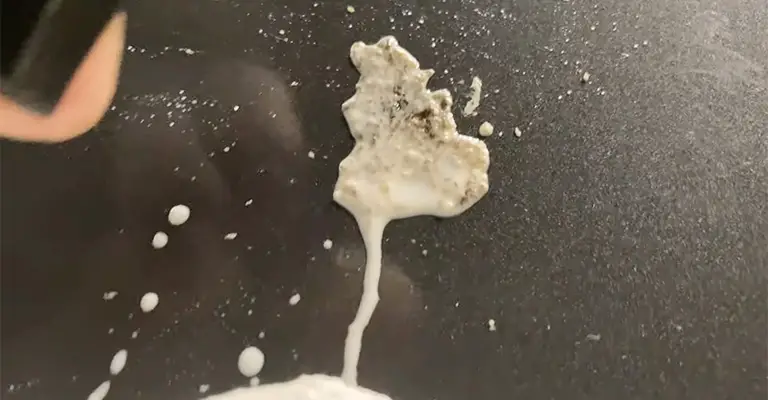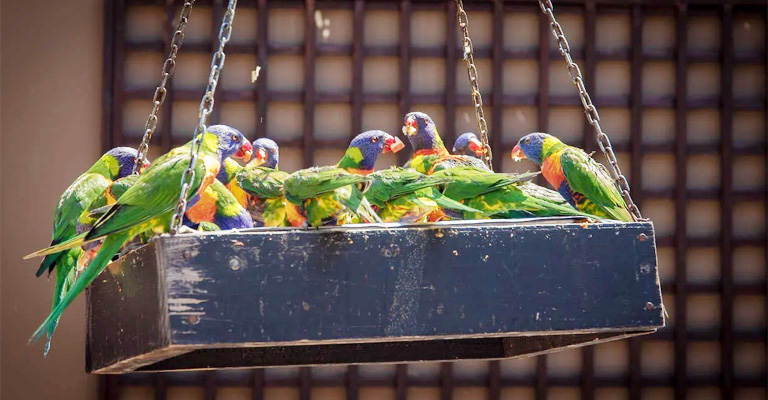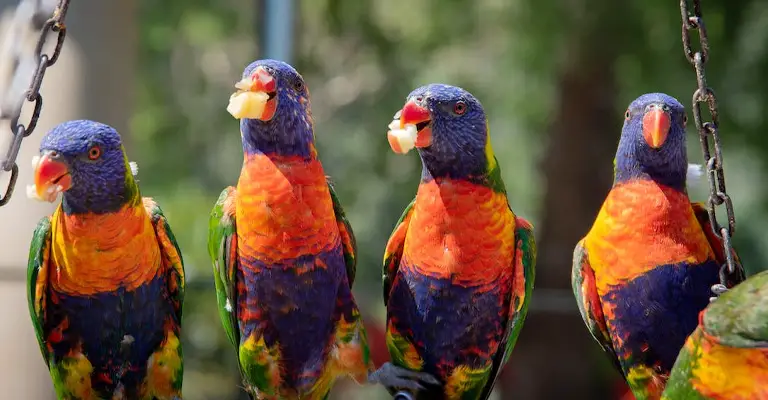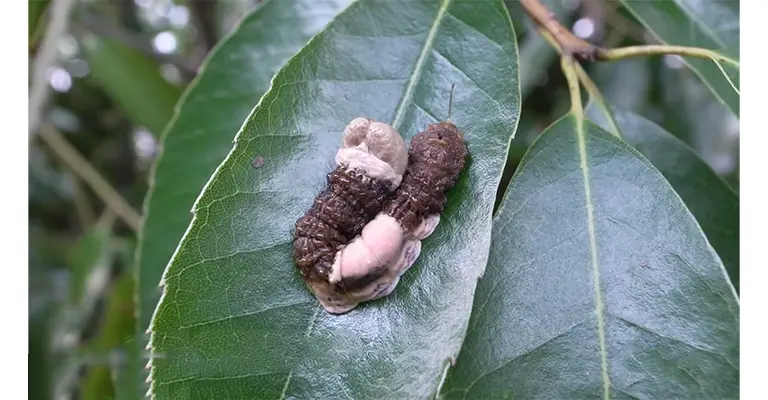From white to brown to green, you’ve seen all these normal colors in your bird’s poop. However, every so often, you may come across an unusual color: purple. This peculiar occurrence raises questions about the health and diet of the bird in question.
So, why is bird poop purple? If you have observed bird droppings that appear purple, it is likely due to external factors rather than a natural occurrence. Certain factors can alter the color of bird droppings, such as the ingestion of pigments from food or environmental contaminants.
For example, if a bird consumes a food source that contains purple pigments, it might temporarily change the color of its droppings. Let’s dive in and find out all the different reasons why your bird’s poop is purple and how to get rid of it.

Why Is Your Bird Pooping Purple?
Bird droppings are not typically purple. The color of bird droppings can vary depending on several factors, including the bird’s diet, metabolism, and overall health. Purple bird droppings are not a natural occurrence and are most likely the result of external factors.
Here are the possible reasons why you’re seeing the color purple in your bird’s dropping-
Including Purple Fruit in Diet
Certain birds, such as pigeons and starlings, consume berries or fruits that contain pigments responsible for the purple color. When these pigments pass through the bird’s digestive system, they can tint the poop purple.
Additionally, the digestion process and the bird’s metabolism will further modify the appearance of the droppings.
Eating Anthocyanin-Rich Foods

Birds that consume anthocyanin-rich foods, such as cherries, blueberries, or blackberries, may have purple-colored droppings. Anthocyanins are a group of pigments responsible for the vibrant colors found in many fruits and vegetables, particularly those that are red, purple, or blue.
When birds consume foods that are high in anthocyanins, these pigments can pass through their digestive system and may affect the color of their droppings.
Artificial Food Dyes
Too often, birds kept as pets might come into contact with artificial food dyes if they consume colored bird treats or other commercial avian food products. Artificial food dyes are synthetic color additives used to enhance the appearance of various food products.
These dyes can pass through a bird’s digestive system and may affect the color of their droppings.
Medications or Supplements
Certain medications or dietary supplements given to birds can contain compounds that can affect the color of their droppings. Some supplements may contain ingredients that result in purple poop.
For instance, certain antibiotics or antifungal medications may contain dyes that can impart a purple or violet color to the droppings. Additionally, some vitamin or mineral supplements designed for birds may contain pigments that can alter the color of the droppings.
Ingestion of Foreign Objects

Birds have been known to ingest items that are not part of their natural diet. If a bird ingests something purple, such as a small toy or object, it can lead to temporary purple-colored droppings.
Keep in mind that foreign objects can pose serious health risks to birds. They might cause gastrointestinal blockages or injuries, which require immediate veterinary attention.
Illness or Digestive Issues
While less common, purple bird poop can be a symptom of certain health conditions or digestive disorders. For instance, liver disease or dysfunction can impact the breakdown and excretion of pigments. It leads to changes in the color of the droppings. In some cases, this can result in droppings that appear purple or have an abnormal color.
Other digestive issues such as gastrointestinal bleeding or malabsorption problems can also cause changes in the color of the droppings. Blood in the digestive system can result in dark or tarry droppings, which may appear purple or black.
If your bird’s droppings are consistently purple, it is advisable to consult a veterinarian to rule out any underlying medical issues.
What is the Normal Color of Bird Poop?

Bird droppings come in a range of colors depending on the species and their diet. Generally, the normal color of bird poop can be categorized as follows:
- White: The white part of bird droppings is the urate, a concentrated waste product produced by the kidneys. It is usually chalky or pasty in texture.
- Brown or green: The brown or green portion of the droppings is the fecal matter, which consists of undigested food and waste products from the digestive system.
- Other colors: Some birds, such as raptors, may have droppings that contain additional colors due to the presence of bile pigments. These colors can range from yellow to green.
How Do You Get Rid of Purple Bird Poop?
When you notice purple droppings from your pet bird, you must deal with this issue carefully and take the necessary measures.
Below are a few steps you can take to address the issue:
Observe the diet
Determine if the bird has been consuming berries, fruits, or any other food that could cause the purple coloration. Modifying the diet can help return the droppings to their normal color.
Remove artificial food dyes
If you suspect the purple color is due to artificial food dyes, discontinue their use and opt for natural or dye-free avian food products instead.
Monitor for foreign objects
Ensure that your bird does not have access to any small objects or toys that it could ingest. Remove any potential hazards from its environment.
Seek veterinary advice
In case the purple color persists or is accompanied by other abnormal symptoms, consult a veterinarian who specializes in avian care. They can examine your bird and provide appropriate treatment or guidance.
FAQs
Not necessarily. If the purple color is due to dietary factors, it is usually harmless. However, if the droppings consistently remain purple or are accompanied by other signs of illness, veterinary attention is recommended.
Yes, stress can sometimes affect a bird’s digestion and result in changes in droppings, including color. However, purple poop solely caused by stress is relatively rare. It can be due to a combination of several other factors such as diet and medication.
If the purple color is due to dietary factors, the droppings should return to their normal color within a few days after adjusting the bird’s diet. However, when the issue is caused by illness, you must treat the bird first to get rid of purple poop.
It is not advisable to use bleach or other harsh chemicals to clean bird droppings. Use mild soap and warm water to clean affected areas. Ensure that the cleaning products are safe for use around birds.
While you may not be able to entirely prevent purple bird poop if it is caused by natural factors, you can minimize the risk by controlling your bird’s diet and ensuring it does not ingest foreign objects.
Bottom Line
Now you know all about why is bird poop purple. The presence of purple bird poop can be intriguing, but it is usually a natural and harmless occurrence caused by diet or certain foods consumed by birds.
However, if the purple color persists or is accompanied by other concerning symptoms, it is crucial to seek veterinary advice. Understanding the causes and potential implications of purple bird droppings allows bird owners to take appropriate measures to ensure their feathered companions’ health and well-being.